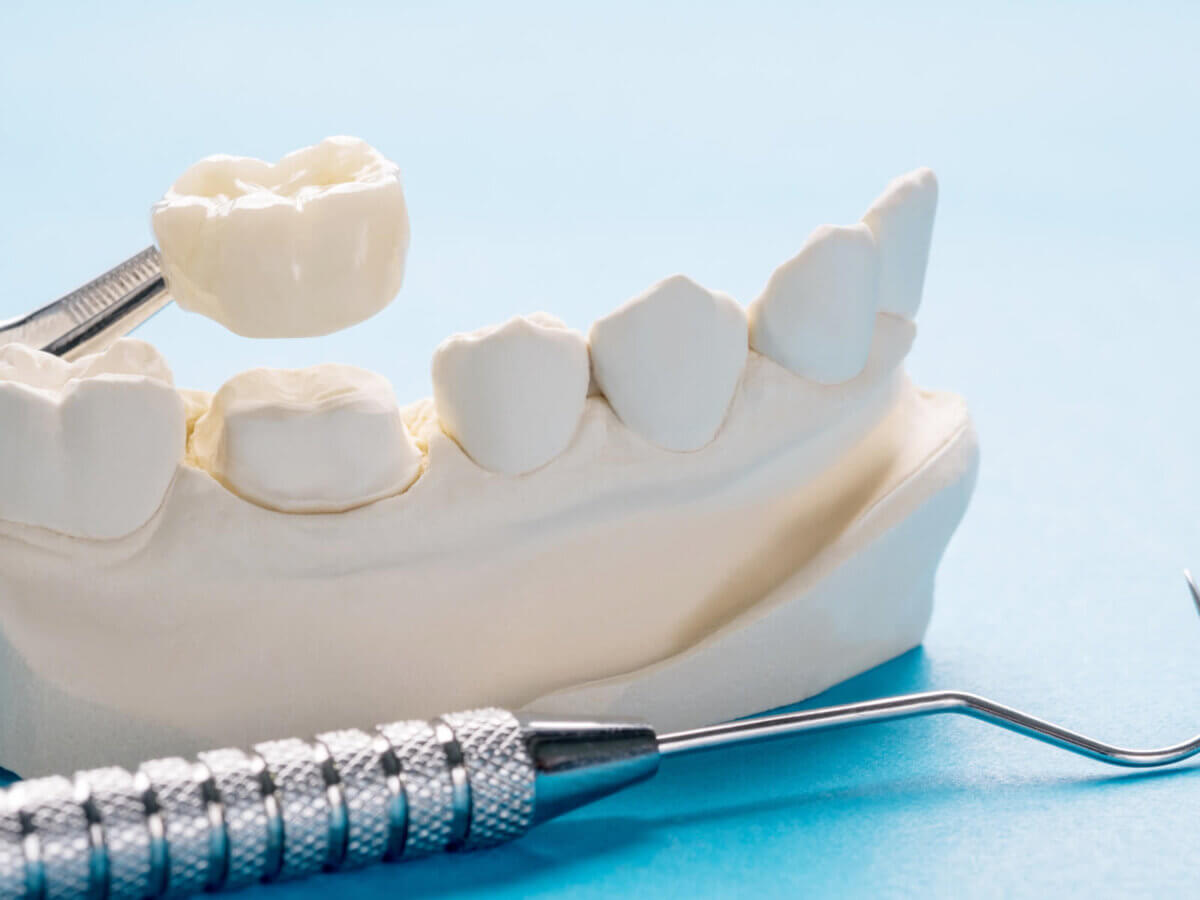Blog
Dental hygiene tips for healthy teeth & gums

Tips For Caring For Your Temporary Crown
So, you’ve just had a dental procedure, and you’re sporting a shiny new temporary crown. While it’s not your permanent one, it’s essential to care for it properly to ensure a smooth transition to your permanent crown. In this article, we’ll provide you with practical tips on the do’s and don’ts of temporary crown care so you can continue smiling confidently.
What are Temporary Crowns?
Temporary crowns are often placed while you wait for your permanent crown to be custom-made by the dental lab. This interim solution serves several vital purposes:
- Protection: They shield the prepared tooth, keeping it safe from damage and infection.
- Functionality: Temporary crowns allow you to eat and talk comfortably while you await your permanent crown.
- Aesthetics: They maintain your smile’s appearance, so you don’t have to worry about gaps or misshapen teeth.
Top Tips for Temporary Crown Care
Avoid Sticky and Hard Foods: Sticky foods like caramel or chewing gum can dislodge your temporary crown. And hard foods like nuts, ice, and hard candies can lead to cracks or damage. Opt for softer options during this time.
- Chew on the Opposite Side: To minimize pressure on your temporary crown, try to chew on the side without the crown.
- Floss Carefully: Be gentle when flossing around your temporary crown. Slide the floss out rather than lifting it out to avoid accidentally dislodging the crown.
- Brush with Care: Use a soft-bristle toothbrush and brush gently, especially around the temporary crown. Be thorough but gentle to avoid any damage.
- Avoid Hot and Cold Extremes: Extreme temperatures can cause the temporary crown to expand or contract, potentially leading to discomfort. Stick to lukewarm or room-temperature foods and drinks.
- Oral Hygiene Is Key: Keep up with your regular oral hygiene routine. Brush and floss twice a day to maintain gum and tooth health around the temporary crown.
- Avoid Alcohol-Based Mouthwash: Alcohol-based mouthwashes can weaken the temporary crown’s adhesive. Opt for an alcohol-free alternative during this period.
- Don’t Grind Your Teeth: Teeth grinding, also known as bruxism, can harm your temporary crown. If you grind your teeth at night, consider using a night guard to protect and take good temporary crown care.
- Be Mindful of Dental Accessories: Remove any dental accessories like retainers or aligners with caution. Taking them off too quickly or forcefully can affect your temporary crown.
- Regular Check-ups: Keep your scheduled appointments with your dentist. They will monitor the condition of your temporary crown and ensure it’s progressing as expected.
- Watch for Signs of Trouble: If you notice any discomfort, pain, or changes in your bite, contact your dentist promptly. These can be early signs of an issue with your temporary crown.
- Avoid Chewing on Pencils or Ice: These habits can damage your temporary crown and even your natural teeth. Remember to use your teeth for eating and nothing else.
What to Do If Your Temporary Crown Comes Loose or Falls Off
Despite your best efforts of doing temporary crown care, there’s still a chance that your temporary crown may become loose or come off entirely. If this happens, don’t panic. Here’s what you should do:
- If it falls out, try to find it and keep it safe. Rinse it gently with warm water to remove any debris.
- Some drugstores sell temporary crown cement. You can try using this to reattach the crown temporarily. Follow the product instructions carefully.
- Do not use superglue or any other household adhesive to reattach the crown. These can be harmful if ingested and may not hold securely.
- Regardless of whether you’ve reattached the crown or not, it’s crucial to contact your dentist as soon as possible. They’ll assess the crown and, if necessary, reattach or replace it.
Conclusion
Temporary crown care is an essential part of the process leading to your permanent crown. With proper attention and care, you can ensure that your temporary crown stays in good condition and doesn’t cause any discomfort.
Remember, it’s a crucial step in maintaining your dental health and smile. By following these tips and promptly addressing any issues, you’ll be well on your way to enjoying a beautiful, healthy, and fully functional permanent crown.


